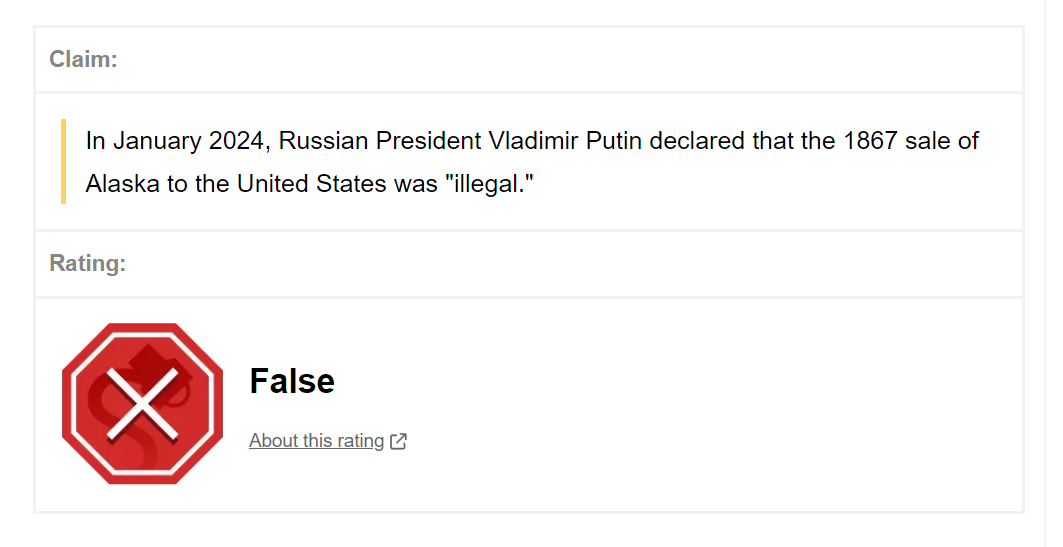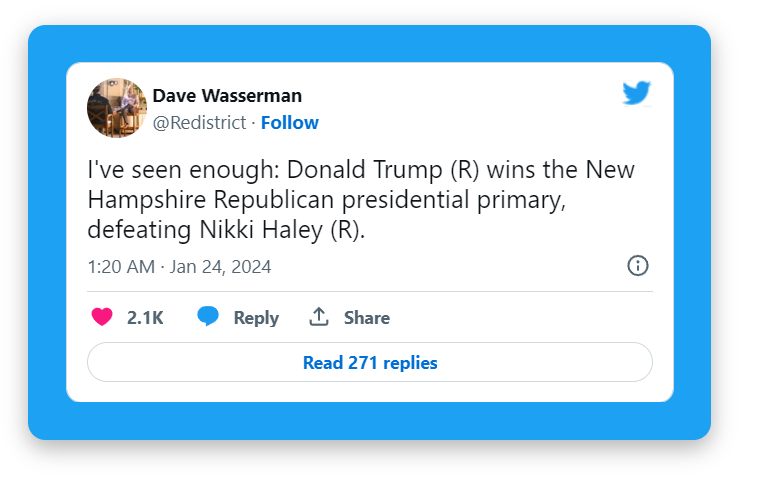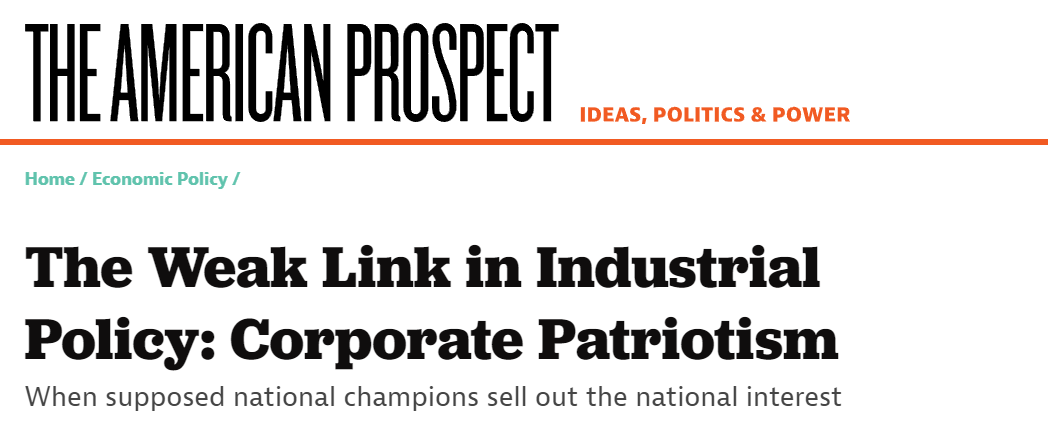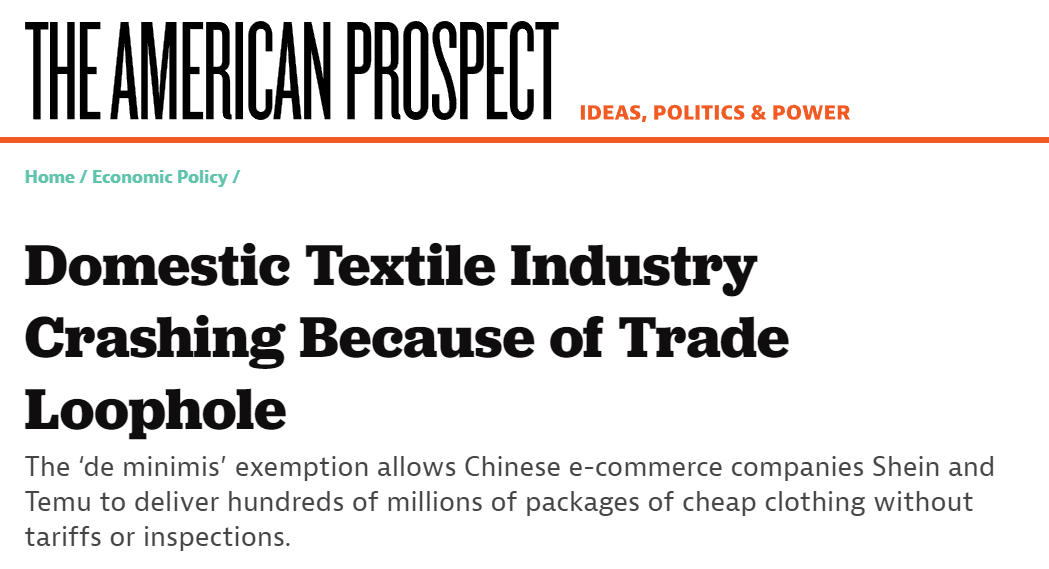Welcome to DU!
The truly grassroots left-of-center political community where regular people, not algorithms, drive the discussions and set the standards.
Join the community:
Create a free account
Support DU (and get rid of ads!):
Become a Star Member
Latest Breaking News
General Discussion
The DU Lounge
All Forums
Issue Forums
Culture Forums
Alliance Forums
Region Forums
Support Forums
Help & Search
Celerity
Celerity's Journal
Celerity's Journal
January 25, 2024

Many voters regard investment in decarbonisation and socially and environmentally beneficial outcomes as economically harmful.
https://www.socialeurope.eu/a-progressive-green-growth-narrative

Once the hub of Britain’s car industry, Birmingham desperately needs a green industrial transition
With voters in 76 countries heading to the polls in 2024, this is a record-breaking year for democracy. Yet it coincides with an alarming rise in right-wing populism, which increasingly blames policies to address climate change for voters’ economic hardships. Despite the clear potential of green initiatives to boost incomes, productivity and economic growth, the progressive left struggles to articulate a compelling counter-narrative. If the false dichotomy between economic prosperity and environmental sustainability persists, the green transition will lack the political support it needs to succeed.
Consider the debate in the United Kingdom over the Labour Party’s £28 billion Green Prosperity Plan, which it has presented as a key instrument to ‘make Britain a clean energy superpower’. Instead of dwelling on the sums being spent, the conversation should focus on what it will take to complete the stated mission. The point is not to throw money at the problem and hope for the best; it is to offer a strategy for mobilising massive private- and public-sector investment towards a collective goal. To make clean energy the engine of its industrial, financial and innovation strategies, Labour needs a new narrative. It needs to show that a mission-oriented government working with businesses to invest and innovate in an outcomes-oriented way will result in new skills, jobs, productivity gains and higher wages.
Green industries
Labour can bolster its case with six arguments. First, there need not be any trade-off between climate action and economic growth. The UK has a huge green industry and capital markets it can tap into with mission-oriented public-sector investment. Green industries will be worth more than $10 trillion globally by 2050 and in the UK they are growing four times as quickly as the rest of the economy. When public investment is guided by a clear mission, it can create new markets, crowd in private investment and increase long-term competitiveness. Germany’s green-steel sector is a good example. It owes its growth to the green-loans programme of the German public bank (KfW), which helped create an entirely new market for carbon-efficient steel.
Secondly, climate finance represents an investment, not a cost. Mission-oriented policies can generate private-sector investment by increasing firms’ productive capacity and spurring cross-sectoral economic activity, with positive spillovers now and in the future. NASA’s Apollo mission and moon landing required research and development not only in aerospace technology but also in nutrition, materials, electronics and software. Camera phones, foil blankets, baby formula and software are just a few of the hundreds of innovations which still benefit us today.
snip
A progressive green-growth narrative

Many voters regard investment in decarbonisation and socially and environmentally beneficial outcomes as economically harmful.
https://www.socialeurope.eu/a-progressive-green-growth-narrative

Once the hub of Britain’s car industry, Birmingham desperately needs a green industrial transition
With voters in 76 countries heading to the polls in 2024, this is a record-breaking year for democracy. Yet it coincides with an alarming rise in right-wing populism, which increasingly blames policies to address climate change for voters’ economic hardships. Despite the clear potential of green initiatives to boost incomes, productivity and economic growth, the progressive left struggles to articulate a compelling counter-narrative. If the false dichotomy between economic prosperity and environmental sustainability persists, the green transition will lack the political support it needs to succeed.
Consider the debate in the United Kingdom over the Labour Party’s £28 billion Green Prosperity Plan, which it has presented as a key instrument to ‘make Britain a clean energy superpower’. Instead of dwelling on the sums being spent, the conversation should focus on what it will take to complete the stated mission. The point is not to throw money at the problem and hope for the best; it is to offer a strategy for mobilising massive private- and public-sector investment towards a collective goal. To make clean energy the engine of its industrial, financial and innovation strategies, Labour needs a new narrative. It needs to show that a mission-oriented government working with businesses to invest and innovate in an outcomes-oriented way will result in new skills, jobs, productivity gains and higher wages.
Green industries
Labour can bolster its case with six arguments. First, there need not be any trade-off between climate action and economic growth. The UK has a huge green industry and capital markets it can tap into with mission-oriented public-sector investment. Green industries will be worth more than $10 trillion globally by 2050 and in the UK they are growing four times as quickly as the rest of the economy. When public investment is guided by a clear mission, it can create new markets, crowd in private investment and increase long-term competitiveness. Germany’s green-steel sector is a good example. It owes its growth to the green-loans programme of the German public bank (KfW), which helped create an entirely new market for carbon-efficient steel.
Secondly, climate finance represents an investment, not a cost. Mission-oriented policies can generate private-sector investment by increasing firms’ productive capacity and spurring cross-sectoral economic activity, with positive spillovers now and in the future. NASA’s Apollo mission and moon landing required research and development not only in aerospace technology but also in nutrition, materials, electronics and software. Camera phones, foil blankets, baby formula and software are just a few of the hundreds of innovations which still benefit us today.
snip
January 25, 2024

Did Putin Declare the 1867 Sale of Alaska to the US 'Illegal' in January 2024?
"Well, the Russian pacific fleet didn’t get the invite to Ukraine and they’re getting pretty bored," one Reddit user commented.
https://www.snopes.com/fact-check/putin-alaska-illegal/


In 1867, the United States bought Alaska from the Russian Empire, significantly expanding its territory. Fast forward to January 2024: Amid Russia's ongoing invasion of Ukraine and U.S. support for Ukraine, a rumor surfaced online. It claimed that Russian President Vladimir Putin declared the 1867 sale of Alaska "illegal." For instance, one Reddit post on the topic read, "Putin stokes tensions with US, declares 1867 sale of Alaska 'illegal.'"
https://twitter.com/intermarium24/status/1749063209019953447
Moreover, social media users shared an alleged document signed by Putin, claiming that the sale of Alaska was not legitimate. "Putin signed an order insinuating the sale of Alaska to the United States in 1867 was illegitimate. This mofo is trolling the West and our leaders shake in their boots in response," a post on X with the alleged official document read.
https://twitter.com/igorsushko/status/1748834252177957308
We found that the rumor was also spread on TikTok. Our research indicated that the rumor originated from an article published on Jan. 21, 2024, by essanews.com website with the title, "Putin stokes tensions with US, declares 1867 sale of Alaska 'illegal.'" It read:

It is true that on Jan. 18, 2024, Putin signed a decree pertaining to the management of Russian Federation property abroad. A copy of it was shared on an official website of the Russian government, labeled as follows (we translated it using Google Translate):

We used Google Translate to ascertain what the decree itself stated, in English:

The document did not, according to this translation, mention Alaska at any point, or state that Alaska or any other territory formerly owned by Russia was sold "illegally." On Jan. 19, 2024, the Russian state-owned news agency TASS published a report on the decree, titled, "Russia to allocate funds for search of Soviet, Imperial Russian property abroad." It informed that Russia would allocate funds for an effort to "find, register and ensure legal protection of Russia’s property abroad, including property of the Soviet Union and the Russian Empire." The article continued (emphasis ours):

snip
Fake News: Putin Declares the 1867 Sale of Alaska to the US 'Illegal' in January 2024 (False, yet is being posted here)

Did Putin Declare the 1867 Sale of Alaska to the US 'Illegal' in January 2024?
"Well, the Russian pacific fleet didn’t get the invite to Ukraine and they’re getting pretty bored," one Reddit user commented.
https://www.snopes.com/fact-check/putin-alaska-illegal/


In 1867, the United States bought Alaska from the Russian Empire, significantly expanding its territory. Fast forward to January 2024: Amid Russia's ongoing invasion of Ukraine and U.S. support for Ukraine, a rumor surfaced online. It claimed that Russian President Vladimir Putin declared the 1867 sale of Alaska "illegal." For instance, one Reddit post on the topic read, "Putin stokes tensions with US, declares 1867 sale of Alaska 'illegal.'"
https://twitter.com/intermarium24/status/1749063209019953447
Moreover, social media users shared an alleged document signed by Putin, claiming that the sale of Alaska was not legitimate. "Putin signed an order insinuating the sale of Alaska to the United States in 1867 was illegitimate. This mofo is trolling the West and our leaders shake in their boots in response," a post on X with the alleged official document read.
https://twitter.com/igorsushko/status/1748834252177957308
We found that the rumor was also spread on TikTok. Our research indicated that the rumor originated from an article published on Jan. 21, 2024, by essanews.com website with the title, "Putin stokes tensions with US, declares 1867 sale of Alaska 'illegal.'" It read:

It is true that on Jan. 18, 2024, Putin signed a decree pertaining to the management of Russian Federation property abroad. A copy of it was shared on an official website of the Russian government, labeled as follows (we translated it using Google Translate):

We used Google Translate to ascertain what the decree itself stated, in English:

The document did not, according to this translation, mention Alaska at any point, or state that Alaska or any other territory formerly owned by Russia was sold "illegally." On Jan. 19, 2024, the Russian state-owned news agency TASS published a report on the decree, titled, "Russia to allocate funds for search of Soviet, Imperial Russian property abroad." It informed that Russia would allocate funds for an effort to "find, register and ensure legal protection of Russia’s property abroad, including property of the Soviet Union and the Russian Empire." The article continued (emphasis ours):

Again, the TASS article did not mention any reference to Alaska in the decree.
In sum, given that the decree signed by Putin did not declare that the 1867 sale of Alaska was "illegal" — or indeed mention Alaska at all — we have rated this claim as False.
In sum, given that the decree signed by Putin did not declare that the 1867 sale of Alaska was "illegal" — or indeed mention Alaska at all — we have rated this claim as False.
snip
January 25, 2024
In Israel, a small but determined movement has emerged in the aftermath of the October 7th terror attacks calling for the return of Jewish settlements to Gaza. Some cite security, others ideology. Their demands have been echoed by two far-right ministers in Benjamin Netanyahu’s government, Finance Minister Bezalel Smotrich and National Security Ministers Itamar Ben-Gvir who said there should be a return to Gush Katif - the largest block of settlements Israel maintained in Gaza until Prime Minister Ariel Sharon’s unilaterally pulled out of the strip in 2005. The ministers’ statements have drawn international condemnation and Netanyahu has called the idea “unrealistic”, but his government has not yet laid out an official plan for Gaza after the war.
DW’s Aya Ibrahim speaks to:
Daniella Weiss, an Israeli settlement leader who lives in the occupied West Bank.
Noga Tarnopolsky a Jerusalem-based independent journalist covering Israeli politics.
Ohad Tal, a member of Israel’s Parliament the Knesset from Finance Minister Bezalel Smotrich’s Religious Zionism party.
Datya Itzhaki, an Israeli tour guide who lived in Gush Katif for 21 years and now hopes she can go back.
Avner Franklin, tour guide at the Gush Katif Museum in Jerusalem.
Chapters:
00:00 Daniella Weiss: The Israeli activist determined to resettle Gaza
03:00 Noga Tarnopolsky: The damage caused by the campaign to return to Gaza
05:16 Avner Franklin: Israel’s recent history in the Gaza strip
07:23 Ohad Tal and Datya Itzhaki: Between security and ideology, the arguments for a return to Gush Katif
13:36 Two state solution?
16:47 Noga Tarnpoolsky on Netanyahu’s ‘radicalisation’
The Israelis who campaign to occupy Gaza - DW News
German public state-owned international broadcaster Deutsche WelleIn Israel, a small but determined movement has emerged in the aftermath of the October 7th terror attacks calling for the return of Jewish settlements to Gaza. Some cite security, others ideology. Their demands have been echoed by two far-right ministers in Benjamin Netanyahu’s government, Finance Minister Bezalel Smotrich and National Security Ministers Itamar Ben-Gvir who said there should be a return to Gush Katif - the largest block of settlements Israel maintained in Gaza until Prime Minister Ariel Sharon’s unilaterally pulled out of the strip in 2005. The ministers’ statements have drawn international condemnation and Netanyahu has called the idea “unrealistic”, but his government has not yet laid out an official plan for Gaza after the war.
DW’s Aya Ibrahim speaks to:
Daniella Weiss, an Israeli settlement leader who lives in the occupied West Bank.
Noga Tarnopolsky a Jerusalem-based independent journalist covering Israeli politics.
Ohad Tal, a member of Israel’s Parliament the Knesset from Finance Minister Bezalel Smotrich’s Religious Zionism party.
Datya Itzhaki, an Israeli tour guide who lived in Gush Katif for 21 years and now hopes she can go back.
Avner Franklin, tour guide at the Gush Katif Museum in Jerusalem.
Chapters:
00:00 Daniella Weiss: The Israeli activist determined to resettle Gaza
03:00 Noga Tarnopolsky: The damage caused by the campaign to return to Gaza
05:16 Avner Franklin: Israel’s recent history in the Gaza strip
07:23 Ohad Tal and Datya Itzhaki: Between security and ideology, the arguments for a return to Gush Katif
13:36 Two state solution?
16:47 Noga Tarnpoolsky on Netanyahu’s ‘radicalisation’
January 24, 2024

A new book looks at how white families depleted the resources of the suburbs and left more recent Black and Latino residents “holding the bag.”
https://www.theatlantic.com/books/archive/2024/01/benjamin-herold-disillusioned-suburbs/677229/
https://archive.is/M9jmQ

Nearly 25 years ago, I reported on the changing demographics of Cicero, a working-class suburb just west of Chicago. For years, the town, which was made up mostly of Italian and Eastern European American families, worked hard at keeping Black people from settling there. In 1951, when a Black family moved in, a mob entered their apartment, tore it up, and pushed a piano out a window. Police watched and did nothing. The governor had to call out the National Guard. By 2000, the nearby factories, which were the economic foundation of the community, had begun to close. White families moved out and left behind a distressed, struggling town to its new residents—Latinos, who now made up three-quarters of the population. It felt wrong. It felt like the white families got to enjoy the prosperity of the place, and then left it to these newcomers to figure out how to repair aging infrastructure and make up for the lost tax revenues.
After reading Benjamin Herold’s Disillusioned, I now realize I was witnessing something much larger: the steady unraveling of America’s suburbs. Herold, an education journalist, set out to understand why “thousands of families of color had come to suburbia in search of their own American dreams, only to discover they’d been left holding the bag.” In this richly reported book, he follows five families that sought comfort and promise in America’s suburbs over these past couple of decades, outside Chicago, Atlanta, Dallas, Los Angeles, and Pittsburgh. In each of these communities, Herold zeroes in on the schools, in large part because education captures the essence of what attracted these families: the prospect of something better for their kids.
The racial and economic fissures in our cities have gotten much attention, but less has been written about how these same fault lines have manifested themselves in the suburbs. This is surprising because the suburbs serve as such a deeply powerful symbol for American aspiration. A house. Good schools. Safe streets. Plentiful services. Consider that from 1950 to 2020, the populations of the nation’s suburbs grew from roughly 37 million to 170 million, which Herold writes represents “one of the most sweeping reorganizations of people, space, and money in the country’s history.”
The suburbs have become such a strong emblem for the American dream that in the 2020 presidential election, Donald Trump used their decline as a bludgeon against the Democrats to suggest that that dream was withering. “They fought all their lives to be there,” he declared about suburbanites. “And then all of sudden something happened that changed their life.” He posted on Twitter, “If I don’t win, America’s Suburbs will be OVERRUN with Low Income Projects, Anarchists, Agitators Looters, and, of course ‘Friendly Protestors.’” I can’t fully decipher Trump’s rant, but suffice it to say he knew that people feared the fall of America’s great experiment in community, and he played off white families’ fear that their communities would be “overrun” with residents who didn’t look like them. In the granular details of the lives of the five families Herold chronicles, it’s clear that Trump had it only partially right. The suburbs—especially the inner-ring suburbs, those closest to the urban centers—have been in collapse, but the people affected, mostly Black and brown families, are not necessarily the constituency Trump had in mind.
snip
The Suburbs Have Become a Ponzi Scheme

A new book looks at how white families depleted the resources of the suburbs and left more recent Black and Latino residents “holding the bag.”
https://www.theatlantic.com/books/archive/2024/01/benjamin-herold-disillusioned-suburbs/677229/
https://archive.is/M9jmQ

Nearly 25 years ago, I reported on the changing demographics of Cicero, a working-class suburb just west of Chicago. For years, the town, which was made up mostly of Italian and Eastern European American families, worked hard at keeping Black people from settling there. In 1951, when a Black family moved in, a mob entered their apartment, tore it up, and pushed a piano out a window. Police watched and did nothing. The governor had to call out the National Guard. By 2000, the nearby factories, which were the economic foundation of the community, had begun to close. White families moved out and left behind a distressed, struggling town to its new residents—Latinos, who now made up three-quarters of the population. It felt wrong. It felt like the white families got to enjoy the prosperity of the place, and then left it to these newcomers to figure out how to repair aging infrastructure and make up for the lost tax revenues.
After reading Benjamin Herold’s Disillusioned, I now realize I was witnessing something much larger: the steady unraveling of America’s suburbs. Herold, an education journalist, set out to understand why “thousands of families of color had come to suburbia in search of their own American dreams, only to discover they’d been left holding the bag.” In this richly reported book, he follows five families that sought comfort and promise in America’s suburbs over these past couple of decades, outside Chicago, Atlanta, Dallas, Los Angeles, and Pittsburgh. In each of these communities, Herold zeroes in on the schools, in large part because education captures the essence of what attracted these families: the prospect of something better for their kids.
The racial and economic fissures in our cities have gotten much attention, but less has been written about how these same fault lines have manifested themselves in the suburbs. This is surprising because the suburbs serve as such a deeply powerful symbol for American aspiration. A house. Good schools. Safe streets. Plentiful services. Consider that from 1950 to 2020, the populations of the nation’s suburbs grew from roughly 37 million to 170 million, which Herold writes represents “one of the most sweeping reorganizations of people, space, and money in the country’s history.”
The suburbs have become such a strong emblem for the American dream that in the 2020 presidential election, Donald Trump used their decline as a bludgeon against the Democrats to suggest that that dream was withering. “They fought all their lives to be there,” he declared about suburbanites. “And then all of sudden something happened that changed their life.” He posted on Twitter, “If I don’t win, America’s Suburbs will be OVERRUN with Low Income Projects, Anarchists, Agitators Looters, and, of course ‘Friendly Protestors.’” I can’t fully decipher Trump’s rant, but suffice it to say he knew that people feared the fall of America’s great experiment in community, and he played off white families’ fear that their communities would be “overrun” with residents who didn’t look like them. In the granular details of the lives of the five families Herold chronicles, it’s clear that Trump had it only partially right. The suburbs—especially the inner-ring suburbs, those closest to the urban centers—have been in collapse, but the people affected, mostly Black and brown families, are not necessarily the constituency Trump had in mind.
snip
January 24, 2024

Dave Wasserman: I've seen enough: Donald Trump wins the NH Republican presidential primary, defeating Nikki Haley
https://twitter.com/Redistrict/status/1749950152381493252
January 24, 2024

Dave Wasserman I've seen enough: Donald Trump wins the NH Republican presidential primary, defeating Nikki Hakey
https://twitter.com/Redistrict/status/1749950152381493252
January 23, 2024

https://prospect.org/economy/2024-01-23-weak-link-industrial-policy-corporate-patriotism/

In 2021, the Biden administration broke with its predecessors and embraced the long-standing progressive goal of industrial policy. The gaps in our industrial base revealed by the pandemic, and the belated concerns about supply chains, pushed the administration to reject past views of industrial policy as a sin against the free market. Several Biden-sponsored laws and policies now promote industrial planning aimed at the development and expansion of U.S.-based production and technology, with rewards to companies having good labor commitments. But in the absence of public ownership, industrial policy is only as good as the private companies that carry it out. Much industrial policy relies on so-called national champions: domestic companies whose interests are supposedly congruent with the national interest. What happens when those interests diverge?
Exhibit A is Boeing. The long-standing U.S. lead in aircraft is substantially based on Boeing, aided by extensive subsidies from Pentagon contracts (40 percent of Boeing revenues in 2022), and more recently $17 billion in COVID aid under the CARES Act for “businesses critical to maintaining national security.” But Boeing is now close to a failed company, because of decades of financialization at the expense of engineering. Earlier this month, a piece of the fuselage fell off of one of its 737 MAX planes mid-flight, and now the FAA wants Boeing to inspect its 737-900ER planes for the same deficiency.
By contrast, Europe’s Airbus actually behaves like a responsible national champion, and has now surpassed Boeing as the world’s leading commercial aircraft producer. Our friend Matt Stoller, who writes the newsletter BIG, has a remedy: nationalize Boeing. As he writes, “Boeing is a state-backed national champion, constructed by the state, financed by the state, protected by the state, and with much of its revenue supplied by the state … it’s time to acknowledge this situation and have the government step in directly and reorganize the firm, as it would during a war or in a bankruptcy.”

Exhibit B is U.S. Steel. Like aircraft, steel is essential to the national defense. It is also a key part of the industrial base. But in December, U.S. Steel decided to sell itself to Japan’s Nippon Steel, in a $14.1 billion all-cash deal. This sale, if allowed to go forward, has immense potential consequences for both U.S. industrial security and for good domestic jobs. Japan has excess steelmaking capacity of about 20 million tons. Unlike most U.S. companies, Japanese corporations are highly nationalistic—they actually behave like national champions.
snip
The Weak Link in Industrial Policy: Corporate Patriotism

https://prospect.org/economy/2024-01-23-weak-link-industrial-policy-corporate-patriotism/

In 2021, the Biden administration broke with its predecessors and embraced the long-standing progressive goal of industrial policy. The gaps in our industrial base revealed by the pandemic, and the belated concerns about supply chains, pushed the administration to reject past views of industrial policy as a sin against the free market. Several Biden-sponsored laws and policies now promote industrial planning aimed at the development and expansion of U.S.-based production and technology, with rewards to companies having good labor commitments. But in the absence of public ownership, industrial policy is only as good as the private companies that carry it out. Much industrial policy relies on so-called national champions: domestic companies whose interests are supposedly congruent with the national interest. What happens when those interests diverge?
Exhibit A is Boeing. The long-standing U.S. lead in aircraft is substantially based on Boeing, aided by extensive subsidies from Pentagon contracts (40 percent of Boeing revenues in 2022), and more recently $17 billion in COVID aid under the CARES Act for “businesses critical to maintaining national security.” But Boeing is now close to a failed company, because of decades of financialization at the expense of engineering. Earlier this month, a piece of the fuselage fell off of one of its 737 MAX planes mid-flight, and now the FAA wants Boeing to inspect its 737-900ER planes for the same deficiency.
By contrast, Europe’s Airbus actually behaves like a responsible national champion, and has now surpassed Boeing as the world’s leading commercial aircraft producer. Our friend Matt Stoller, who writes the newsletter BIG, has a remedy: nationalize Boeing. As he writes, “Boeing is a state-backed national champion, constructed by the state, financed by the state, protected by the state, and with much of its revenue supplied by the state … it’s time to acknowledge this situation and have the government step in directly and reorganize the firm, as it would during a war or in a bankruptcy.”

Exhibit B is U.S. Steel. Like aircraft, steel is essential to the national defense. It is also a key part of the industrial base. But in December, U.S. Steel decided to sell itself to Japan’s Nippon Steel, in a $14.1 billion all-cash deal. This sale, if allowed to go forward, has immense potential consequences for both U.S. industrial security and for good domestic jobs. Japan has excess steelmaking capacity of about 20 million tons. Unlike most U.S. companies, Japanese corporations are highly nationalistic—they actually behave like national champions.
snip
January 23, 2024

https://prospect.org/economy/2024-01-23-domestic-textile-industry-trade-loophole/

In August, textile manufacturer HanesBrands announced it would shutter its hosiery plant in Clarksville, Arkansas, in September and lay off 330 workers. The plant, which was brought back stateside from Honduras in 2015, was the last HanesBrands U.S. facility, after it sold a fabric plant earlier in the year. In October, Gildan announced a textile plant closure in Salisbury, North Carolina, with 250 jobs lost. The same month, Milliken closed two plants in South Carolina, on the heels of shuttering a separate one in North Carolina in May; and Parkdale Mills, a yarn company, closed three of its four plants in Hillsville, Virginia, and laid off 326 workers, after closing a separate facility in Graniteville, South Carolina, in February. Finally, earlier this month National Spinning shut the doors at its last yarn-spinning facility in Whiteville, North Carolina, which had operated for six decades. A hundred National Spinning employees are now out of work.
That’s eight textile plant closures since September, a figure backed up by the National Council of Textile Organizations (NCTO), a top trade group for the industry. While textile manufacturing has been in decline in America for five decades, the supply chain still supported over 500,000 U.S. workers in 2022, according to NCTO figures. So this rapid downsizing is alarming. The notice of the shutdown at National Spinning brought to the surface a simmering issue that many industry leaders have articulated recently. “The rise of import garments due to de minimis shipments for online shopping has deteriorated sales at retail stores, thereby impacting our domestic supply chains,” National Spinning president and CEO Jim Booterbaugh wrote in a filing to the North Carolina Department of Commerce.
Executives at Milliken and Parkdale Mills also cited de minimis to The New York Times as a primary factor in recent losses. “We’re trying to create more jobs,” said the Parkdale Mills executive, Davis Warlick. “All of that is threatened daily by one bad, ill-informed decision on Capitol Hill.” I have written in the past about the de minimis loophole, which allows for goods of nominal value to be shipped into the U.S. without tariffs, fees, or inspections. That value was increased in 2016 from $200 to $800; since then, de minimis shipments, particularly from China, have soared to over 685 million in 2022, according to the U.S. Customs and Border Protection (CBP). Some estimates for 2023 put that number over one billion.

The rise of e-commerce is the primary factor in the de minimis boom. Originally, lawmakers’ motivations for increasing the threshold were attributed mostly to Amazon, which uses third-party manufacturers in China that ship products to their warehouses or directly to customers. But some of the biggest beneficiaries today are actually Amazon competitors: Chinese fast-fashion companies Shein and Temu. And they are having such a dramatic impact on the domestic textile industry that even this sclerotic Congress might be willing to take action. “It’s completely overwhelmed CBP. It has posed an existential threat to companies on the edge anyway,” said Rep. Earl Blumenauer (D-OR), who has been trying to reform de minimis for the past three years. “I have been at times a lonely voice. But I’m not so lonely anymore.”
snip
Domestic Textile Industry Crashing Because of Trade Loophole

https://prospect.org/economy/2024-01-23-domestic-textile-industry-trade-loophole/

In August, textile manufacturer HanesBrands announced it would shutter its hosiery plant in Clarksville, Arkansas, in September and lay off 330 workers. The plant, which was brought back stateside from Honduras in 2015, was the last HanesBrands U.S. facility, after it sold a fabric plant earlier in the year. In October, Gildan announced a textile plant closure in Salisbury, North Carolina, with 250 jobs lost. The same month, Milliken closed two plants in South Carolina, on the heels of shuttering a separate one in North Carolina in May; and Parkdale Mills, a yarn company, closed three of its four plants in Hillsville, Virginia, and laid off 326 workers, after closing a separate facility in Graniteville, South Carolina, in February. Finally, earlier this month National Spinning shut the doors at its last yarn-spinning facility in Whiteville, North Carolina, which had operated for six decades. A hundred National Spinning employees are now out of work.
That’s eight textile plant closures since September, a figure backed up by the National Council of Textile Organizations (NCTO), a top trade group for the industry. While textile manufacturing has been in decline in America for five decades, the supply chain still supported over 500,000 U.S. workers in 2022, according to NCTO figures. So this rapid downsizing is alarming. The notice of the shutdown at National Spinning brought to the surface a simmering issue that many industry leaders have articulated recently. “The rise of import garments due to de minimis shipments for online shopping has deteriorated sales at retail stores, thereby impacting our domestic supply chains,” National Spinning president and CEO Jim Booterbaugh wrote in a filing to the North Carolina Department of Commerce.
Executives at Milliken and Parkdale Mills also cited de minimis to The New York Times as a primary factor in recent losses. “We’re trying to create more jobs,” said the Parkdale Mills executive, Davis Warlick. “All of that is threatened daily by one bad, ill-informed decision on Capitol Hill.” I have written in the past about the de minimis loophole, which allows for goods of nominal value to be shipped into the U.S. without tariffs, fees, or inspections. That value was increased in 2016 from $200 to $800; since then, de minimis shipments, particularly from China, have soared to over 685 million in 2022, according to the U.S. Customs and Border Protection (CBP). Some estimates for 2023 put that number over one billion.

The rise of e-commerce is the primary factor in the de minimis boom. Originally, lawmakers’ motivations for increasing the threshold were attributed mostly to Amazon, which uses third-party manufacturers in China that ship products to their warehouses or directly to customers. But some of the biggest beneficiaries today are actually Amazon competitors: Chinese fast-fashion companies Shein and Temu. And they are having such a dramatic impact on the domestic textile industry that even this sclerotic Congress might be willing to take action. “It’s completely overwhelmed CBP. It has posed an existential threat to companies on the edge anyway,” said Rep. Earl Blumenauer (D-OR), who has been trying to reform de minimis for the past three years. “I have been at times a lonely voice. But I’m not so lonely anymore.”
snip
January 23, 2024

The House ethics panel investigating far-right Rep. Matt Gaetz (R-FL) has contacted multiple new witnesses and begun interviews, according to ABC News.
The House Ethics Committee reopened its probe into Gaetz in July, after the Department of Justice’s sex-trafficking investigation closed without charging the Florida congressman.
Gaetz has been accused of sexual misconduct, drug use, and public corruption.
In a statement to ABC News, Gaetz mocked the Republican-led panel, saying, “It’s great to see the Ethics Committee has interests beyond trading stocks. They seem to be quite the unusual whales.”
Read it at ABC News
House Ethics Probe Into Matt Gaetz Is Heating Up Again
https://www.thedailybeast.com/house-ethics-probe-into-matt-gaetz-is-heating-up-again
The House ethics panel investigating far-right Rep. Matt Gaetz (R-FL) has contacted multiple new witnesses and begun interviews, according to ABC News.
The House Ethics Committee reopened its probe into Gaetz in July, after the Department of Justice’s sex-trafficking investigation closed without charging the Florida congressman.
Gaetz has been accused of sexual misconduct, drug use, and public corruption.
In a statement to ABC News, Gaetz mocked the Republican-led panel, saying, “It’s great to see the Ethics Committee has interests beyond trading stocks. They seem to be quite the unusual whales.”
Read it at ABC News
Profile Information
Gender: FemaleHometown: London
Home country: US/UK/Sweden
Current location: Stockholm, Sweden
Member since: Sun Jul 1, 2018, 07:25 PM
Number of posts: 43,255
